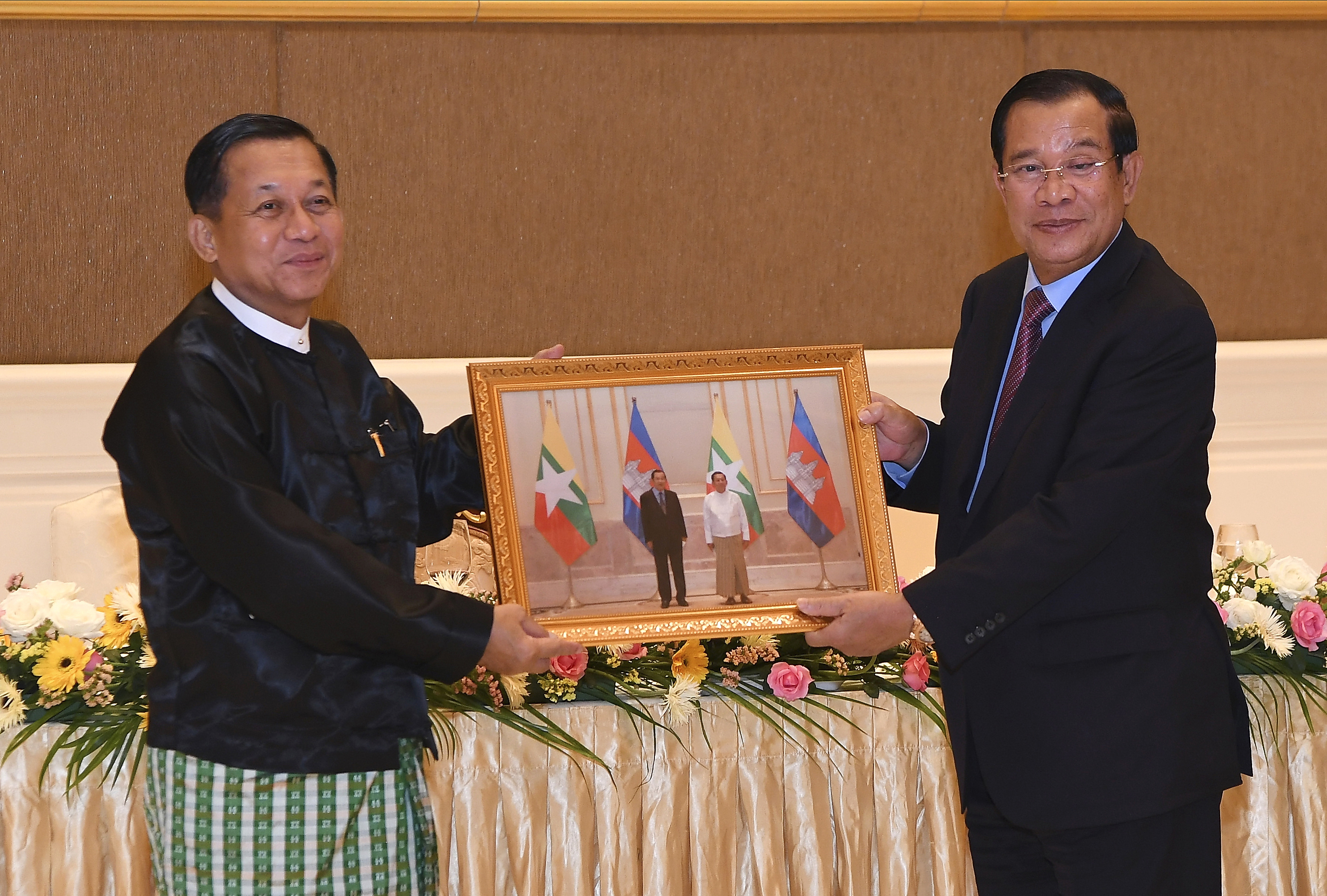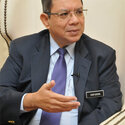#ASEAN
ASEAN in disarray

Consensus-based policies and unity are supposed to be the hallmarks of the Association of Southeast Asian Nations (ASEAN). Now a freewheeling ASEAN-chair has plunged the regional block into a crisis of unity and direction.
Following the coup in Myanmar a year ago, leaders of all ten ASEAN-states agreed to a 5-point plan. It included cessation of violence and mediation by an ASEAN envoy, who was to visit the country “to meet all parties concerned”. The plan, like many ASEAN-endeavours, sounded good, but was not implemented. Myanmar´s junta did not allow a proposed meeting between ASEAN´s envoy and NLD-leader Aung San Suu Kyi, who is locked up. The envoy cancelled his planned trip. At that point, ASEAN was still rather united: nine member-states showed their displeasure with their tenth member, Myanmar, by excluding Myanmar´s military leader, General Min Aung Hlaing, from ASEAN meetings. However, last month, that block of nine ASEAN-member states, which had initially taken a tough, united stance on Myanmar, also fell apart. Without consulting his allies, ASEAN´s new Chair, Cambodia´s Prime Minister Hun Sen, travelled to Myanmar to meet General Min Aung Hlaing. By making the trip, the first of any head of state to Myanmar since the coup, Hun Sen effectively recognized a regime, which has not been recognized by ASEAN - or by the UN for that matter.
No consultation with other ASEAN leaders
Hun Sen´s trip to Myanmar, were 1.500 people have been killed since the coup, was swiftly criticised by NGOs. “The other eight ASEAN countries should make it clear that the majority of ASEAN states favour an approach that requires negotiations with all parties to the Myanmar conflict, not just the generals who launched the coup and led Myanmar into this unmitigated disaster of continuous conflict, violence, and rights abuses,” Phil Robertson, Deputy Asia Director of Human Rights Watch, told France24. ASEAN leaders, remarkably, did just that – and then some. Indonesian President Widodo called Hun Sen and insisted that unless Myanmar helps implement the 5-point plan, Gen. Min Aung Hlaing should not have a seat at an ASEAN table. Singapore´s Prime Minister Lee also made a call and reminded Hun Sen there was a need for the ASEAN chair to engage all parties concerned in Myanmar, not only the military but also the ousted National League for Democracy (NLD).
Because Hun Sen has already assumed the chair of ASEAN, he could have probably consulted the other ASEAN leaders and sought our views as to what he should do if he were to go to Myanmar.

Malaysia´s foreign minister Saifuddin added: “Because Hun Sen has already assumed the chair of ASEAN, he could have probably consulted the other ASEAN leaders and sought our views as to what he should do if he were to go to Myanmar”. Of course, Hun Sen hit back. He reportedly said that Malaysia´s Saifuddin "lacked politeness" and "should not be too arrogant with inappropriate remarks". Cambodia cancelled a scheduled in-person ASEAN foreign ministers’ meeting in Siem Reap, citing Covid-related travel challenges.
ASEAN Reform needed
ASEAN’s once ironclad consensus-based principle and policy of non-intervention had been a conundrum in the past, leading to ineffectiveness. Now a lack of unity poses a new type of dilemma. An ASEAN chair has neglected consensus and disregarded protocols. Might this lead to a deterioration of ASEAN? Rahul Mishra, an ASEAN expert, notes that the power of the ASEAN chair has risen over the past few years while the role of the Secretary General has declined. The current Secretary General, Lim Jock Hoi, is less active than predecessors like Ong Keng Yong and Surin Pitsuwan were. Dr. Thitinan, a political scientist, believes ASEAN needs to reform and to strengthen its Secretariat in Jakarta, which currently has, unlike the European Commission, virtually no say. The establishment of an ASEAN parliament and an election rather than a rotation of the Secretary General might also be helpful. While such suggestions may appear to be farfetched, they just might be necessary.
*Husai Chantarawirod is a Project Officer at the Regional Office Southeast and East Asia of the Friedrich Naumann Foundation for Freedom in Bangkok, Thailand. Moritz Kleine-Brockhoff is the Regional Director.

